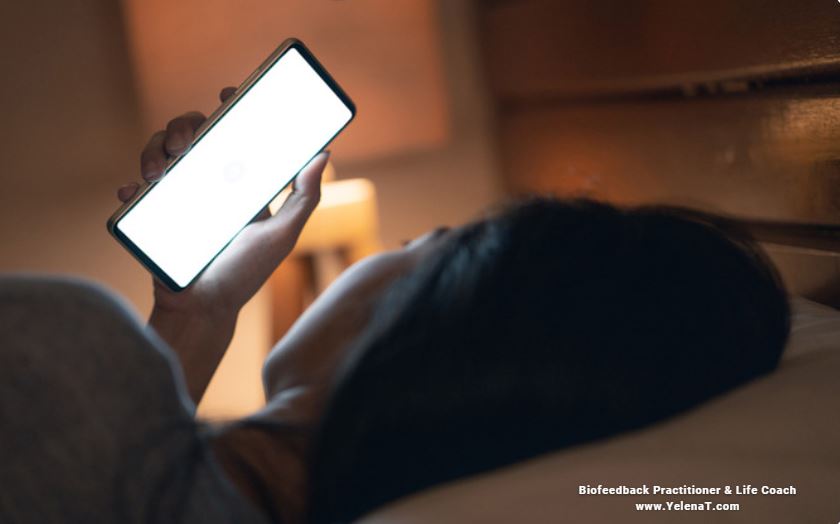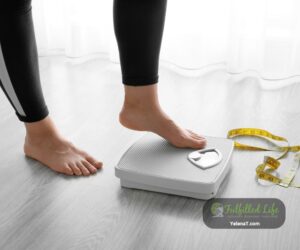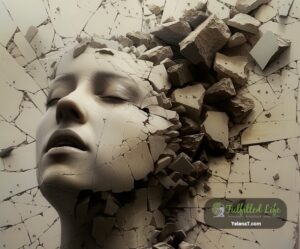Our circadian rhythm is one of the most important things that help our body sleep and wake up. A regular rhythm allows our body to produce melatonin at night to sleep, and it keeps us alert during the day. However, one thing that suppresses melatonin production is blue light.
Here is what you need to know about how blue light can disrupt your sleep in the long run.
Blue Light Basics
In simple terms, blue light is one of the visible light spectrums. It has the highest energy and the shortest wavelength. In our world, almost 1/3rd of all visible light is considered to be blue light.
That is why it is no surprise we have many tools and devices that emit this blue light. Here are some of the most common sources of blue light that are present in everyone’s homes:
- TV
- Smartphone
- Computers
- LED lights
- Tablets
- CFL bulbs
- And much more
That is why it is always advisable never to use these devices before you go to bed, as they can disturb your natural sleep cycle. The blue light emitted from these devices keeps us up all night.
Blue Light and Circadian Rhythm
As I have mentioned before, our natural circadian rhythm is essential to our sleep and wake cycle. When the optic nerves in our brain perceive light, they emit signals to the brain’s SCN (suprachiasmatic nucleus). It is responsible for regulating your circadian rhythm through the pineal gland.
Pineal gland is responsible for melatonin production when our optic nerves can perceive darkness. However, blue light from our electronic devices suppresses melatonin production. That is why we are alert late at night if we are scrolling through our phones or watching TV.
It is essential to take into account the timing of when you are being exposed to blue light. That is because blue light exposure keeps us alert, which is ok during the daytime. However, it keeps us up at night.
That is why you should limit your electronic device usage to daytime only. It will allow you to fall asleep faster and get a better quality sleep.
Tips To Reduce Effect of Blue Light
Of course, the most effective way to reduce the effect of blue light is to turn off all your devices at night. However, not all of us have the willpower to do that as we are highly dependent on technology. Of course, there are various ways you can utilize to mitigate the effects of blue light:
Blue Light Blocking Glasses
Yes, there is such a thing as blue-light-blocking glasses. They filter out the blue light so you can sleep better at night. It is suggested to wear these glasses at least two to three hours before you decide to sleep.
According to a recent study, people that used these glasses for two weeks saw incredibly positive results. The nighttime melatonin production of these people increased by 58%, and participants fell asleep quicker and slept for twenty-four minutes longer than average. The study goes to show the positive results you can encounter by using these glasses.
Limit Your Screen Time
We don’t have to use our phones all the time to scroll mindlessly. But, unfortunately, it has become a bad habit that we all need to get rid of to enjoy better quality sleep. That is why you should not indulge in screen time before bed.
It would be best if you stopped using any screen at least two to three hours before bed. During this time, you can establish a better sleep routine. For example, you can read a book or take a warm bath to promote relaxation and enjoy better quality sleep.
Limiting screen time will support your body with melatonin production. Because of this, you will enjoy a better quality and more restful sleep in no time.
Spend Time Outdoors during the Day
If you don’t go out during the day, your body will not know the difference between day and night, which will throw its circadian rhythm off balance. That is why it is essential to spend time every day in natural light. In the long run, it will reduce your chances of sleep disruptions as your body will naturally know when it is time to rest.
Ideally, you should spend some time walking in nature. Or just sit outside in your backyard or patio to soak in the sunlight during the day. It will give your body the signal that it needs to stay alert and energized. After that, when night falls, your body will naturally start feeling sleepy, and you will not have to depend on anything to enjoy a high-quality sleep.
Switch to Night Mode
Almost all smartphones out there have a night mode. In this mode, red and orange light is emitted, so your sleep is not disrupted. These colors are on the opposite end of the electromagnetic spectrum and don’t disturb the sleep pattern as badly. So, if your phone has a night mode, it is time to switch during the nighttime.
On the other hand, if you don’t have such an option on your phone, you can always download apps that help block blue light. There are multiple apps out there that specialize in this.
I hope you found this information on how blue light can disrupt your sleep, useful. Also, keep in mind that there are short-term and long-term effects of sleep deprivation on your mind and body. That is why you should always get a restful sleep as often as possible, ideally each night.
If you are struggling with sleep deprivation problems, you can always take charge of your health by exploring my “Sleep Deeply” program. I will work with you to improve the quality of your sleep, so your overall health is not affected.
Over the course of 10 weeks, we will work with Biofeedback frequencies that are selected just for you to get you to a better state of sleep.
If you would like to learn more about Biofeedback frequencies and experience them for yourself – for a limited time only, I am offering a complimentary session. Please click on the link below to schedule your FREE session now:
https://bit.ly/biofeedbackcall
Be Healthy! Be Safe! Be Well!








